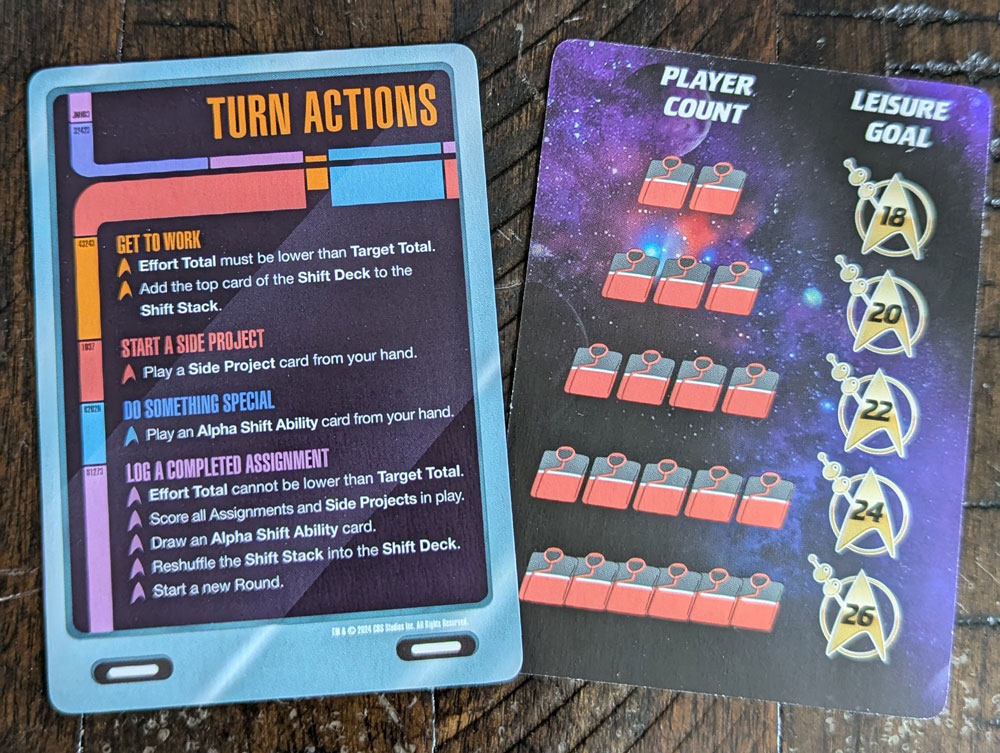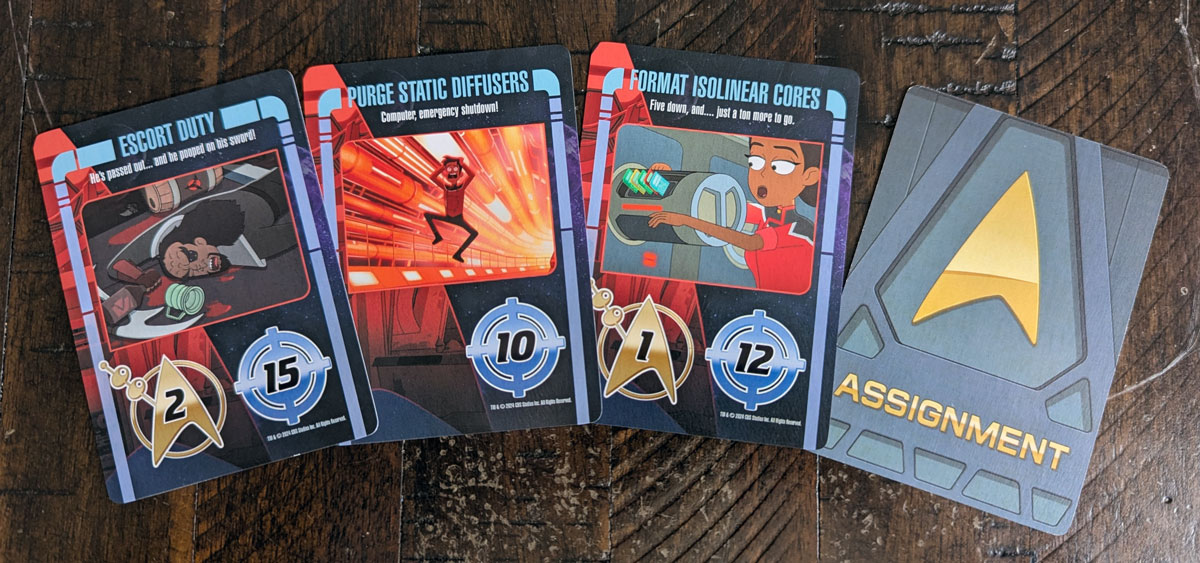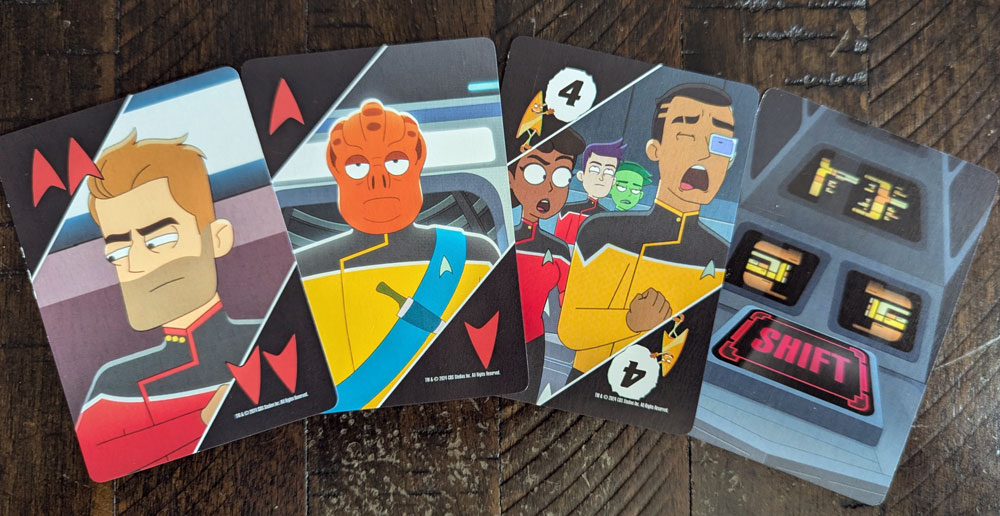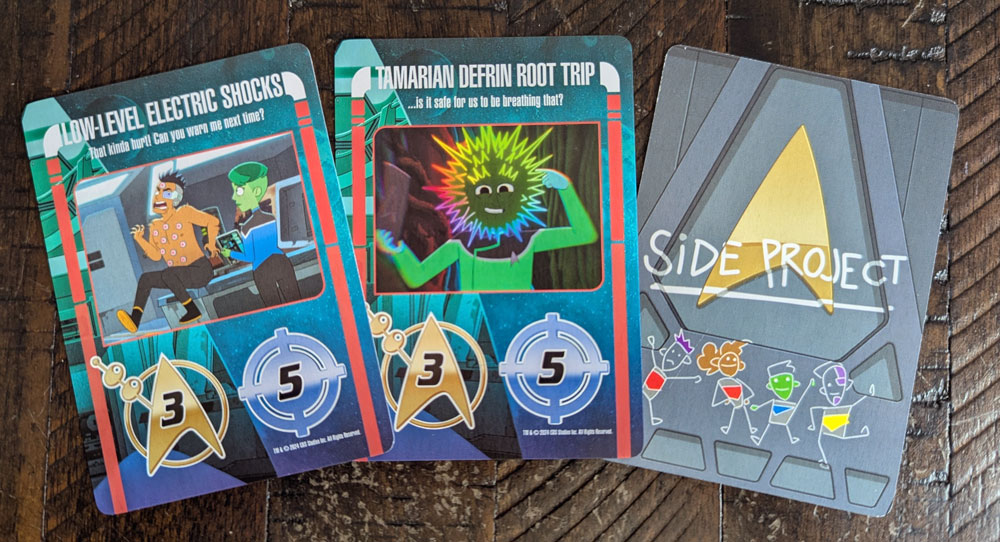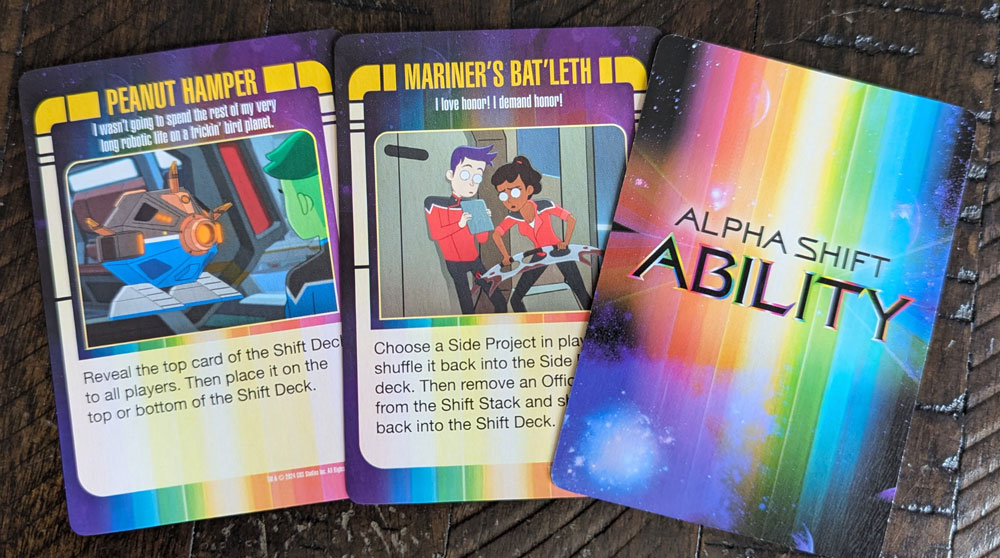Star Trek fans, your next fixation has arrived! It’s no Bat’leths & BiHnuchs, but it’s the next best thing Star Trek: Lower Decks – Buffer Time, available soon from Modiphius Entertainment.
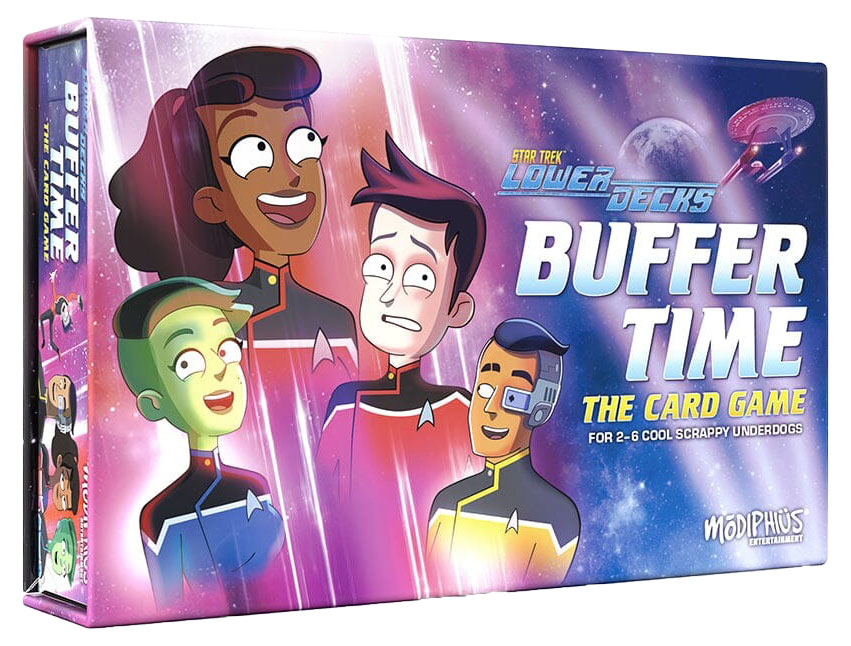
Buffer Time is a cooperative press-your-luck card game, where you act as junior officers accomplishing tasks around the USS Cerritos — and more importantly, slacking off to pursue some personal projects worth Leisure Points in between. Players draw from a “Shift” deck containing cards with “Effort” points, trying to accumulate enough to reach a variable target number before drawing too many officer cards who check up on you.
You’ll also have a very limited number of special “Alpha Shift” ability cards you can play to avoid officers, peek at the deck, or swap cards with your teammates. If too many officers bust you slacking off, you’ll lose all the progress from that round (and perhaps some slacking-off you’d previously earned points on as well).
The base action you take every turn, adding Effort to reach your target number of points, has an element of risk (potentially pulling an officer card instead of Effort), but occasionally you’re rewarded with a high-value card that makes taking the chance feel worthwhile. Adding more “Side Quests” increases the target number, but scores those precious “Leisure Points” you need to win the game.
Buffer Time is a slick-looking addition to your Star Trek gaming collection with all the quality references (and in-jokes) you’d expect from a Lower Decks-themed offering. It’s nice to see a light and quick game — you can finish within 20 minutes, if things go very well or very poorly — which is a relatively rare niche for Star Trek games.
The overall play cycle is very entertaining, with a variety of ways to manipulate the flow of the game and optimize your crewmates’ goofing off.
Frustratingly, there don’t seem to be enough ways to actually deploy those tricks. The game is punishingly difficult to actually win. Losing one round (out of five in a typical game) feels crushing, rather than merely a setback to be overcome. You not only waste any resources you’d spent that round, but also lose some of your accumulated Leisure Points from previous rounds. There are a few variables that could have likely been sorted out with a little more playtesting to ensure players get the most out of Buffer Time.
The ratio of officers to Effort points in the Shift deck makes the main strategy of chasing high-value cards to earn Leisure points very swingy. Sometimes, the shuffle means you can draw two officer cards back to back and have the last dozen cards you drew — along with any Alpha Shift cards used that round — rendered meaningless. You might even burn the round with rapid officer appearances in the first handful of cards, before you’d even consider spending Alpha Shift cards.
Each player only gets two Alpha Shift cards at the start of the game, plus maybe one more for the player who successfully ends a round to bank points. That’s a startlingly small number of chances to interject a small shot of order into the chaos of pressing your luck. My experience was that spending these cards aggressively in early rounds that start off well to build up a buffer of Leisure points was the route to go. This yielded better results than playing conservatively and running out of gas in later rounds, fully at the mercy of the randomness in the deck.
Buffer Time has a scaling win condition depending on the number of players. When I tried playing with two, four, and six players, I found that the higher player counts felt more exciting and achievable, even while ultimately losing most of the games I played at any player number. More players means a correspondingly higher number of Alpha Shift abilities being brought to bear, which is where the real juice can be found in Buffer Time.
Some of the abilities on the Alpha Shift cards suggest that players are keeping their options a secret from their fellow players (“Each player shows you the Side Projects in their hand…”), but it’s unclear why this would be. Lower Decks is all about solidarity of Starfleet’s peons, so of course they’ll cooperate to sneak in a little leisure time amongst their actual duties! Even playing with open information for optimal coordination, I found it a daunting task to build any momentum and accumulate enough Leisure Points to feel like meeting the win condition was even a possibility.
There are certainly ways to adjust the game with house rules and make the significant challenge worth facing: primarily, better access to Alpha Shift cards. Perhaps everyone draws one after a successful round, instead of a single player. Or even handing out the same number of Alpha Shift cards regardless of player count, but limiting everyone to only having two cards available to play at a time. Playing with open information also seems logical, and there’s no explicit prohibition against telling everyone what cards you have in hand.
Another change might be increasing the number of officer points that end a round from four to five, making the appearance of Captain Freeman (who is worth three officer points herself) not always be an instant round-ender. You might play for six rounds instead of five, or not remove Leisure points after being caught by officers.
Adding a few more Effort cards to the shift deck to thin out the appearance of officers could also help, but that isn’t something the average player is going to do by buying two copies of the game and tinkering with the math.
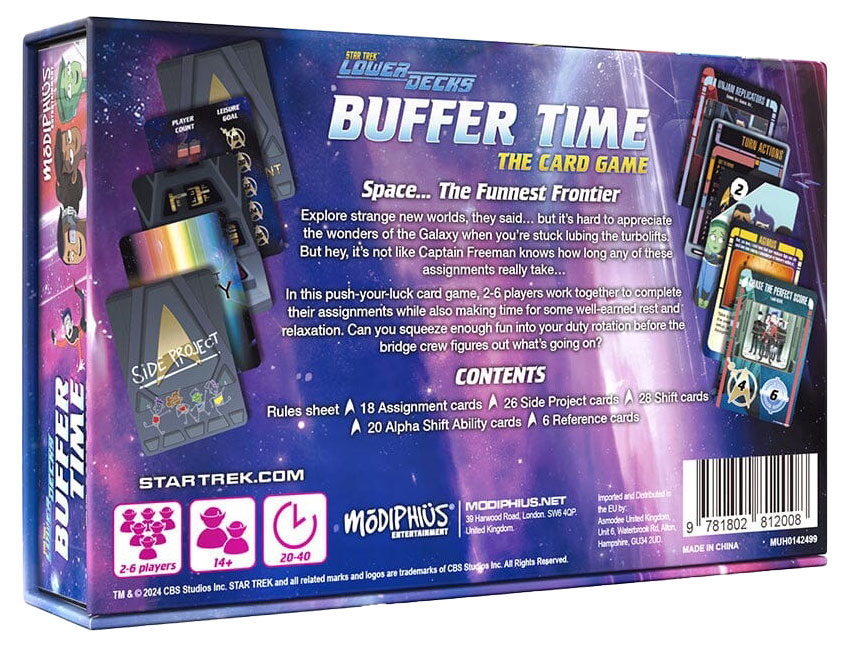
The basic engine of the play is satisfying, and you can get a lot of mileage out of this card game with your friend group – as long as you’re willing to experiment a little. Making a few adjustments to the difficulty levers in the game can open up your game table to all of the heart-pounding slacking action that Star Trek: Lower Decks — Buffer Time has to offer.
![]()
Star Trek: Lower Decks — Buffer Time is available for preorder today.

